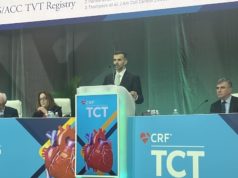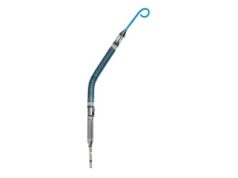
A new study has found no significant differences in hospital mortality between multivessel percutaneous coronary intervention (PCI) and culprit-vessel only PCI for the management of cardiogenic shock patients who had received early mechanical circulatory support. These findings suggest that, contrary to previous studies, multivessel PCI may be safe in selected cardiogenic shock patients.
Writing in JACC: Cardiovascular Interventions, Alejandro Lemor (Henry Ford Hospital, Cardiovascular Department, Detroit, USA) and others report that there is a lack of consensus about the use of multivessel PCI in patients who have cardiogenic shock. They state the CULPRIT-SHOCK trial found that cardiogenic shock patients who received multivessel PCI had poorer outcomes at 30 days than those received culprit-vessel only PCI. However, the trial did not find any significant differences in survival between the two groups from 30 days to one year. Furthermore, patients in the culprit-vessel only PCI group had an increased risk of repeat revascularisation and hospitalisation for heart failure within the first year of follow-up.
Another issue in the debate over the use of multivessel PCI for cardiogenic shock is the emergence of mechanical circulatory support, with Lemor et al noting that recent studies have indicated that the use of mechanical circulatory support may significant reduce mortality in patients with cardiogenic shock. “To date, studies comparing revascularisation strategies in patients with acute myocardial infarction cardiogenic shock and multivessel coronary artery disease with the use of mechanical circulatory support has been limited,” the authors say. Therefore, the aim of the present study was to compare multivessel PCI with culprit-vessel PCI in cardiogenic shock patients who received mechanical support.
Lemor et al reviewed outcomes from hospitals participating in the National Cardiogenic Shock Initiative, which has a set strategy for managing cardiogenic shock patients—including the early use of mechanical circulatory support. In the study, of 198 cardiogenic shock patients with multivessel disease, 126 received multivessel PCI and 72 received culprit-vessel only PCI. The primary endpoint was hospital survival and secondary endpoints included acute kidney injury.
The authors report that there were no significant differences between groups in the rate of hospital survival or in the rate of acute kidney injury. They add: “Among patients with three-vessel coronary artery disease and multivessel PCI, those that underwent two-vessel PCI had a 65.7% survival and those with three-vessel PCI had a 72.7% survival.”
The authors conclude: “Selective non-culprit PCI can be safely performed in acute myocardial infraction cardiogenic shock in patients supported with mechanical circulatory support. Further studies are needed to assess long-term outcomes of this treatment strategy.”
Lemor told Cardiovascular News: “We saw worse haemodynamics initially in those undergoing multivessel PCI; however, patients were more tolerant of this transient worsening of myocardial function without effecting in-hospital mortality, as they were supported with mechanical circulatory support. An important message of the study is that selective non-culprit PCI can be safely performed in [the setting of] acute myocardial infarction cardiogenic shock in patients supported with mechanical circulatory support. The decision of multivessel PCI should be carefully evaluated, taking into account several factors, such as TIMI flow grade, presence of a chronic total occlusion, the size and distribution of the vessel, and underlying haemodynamics.”










